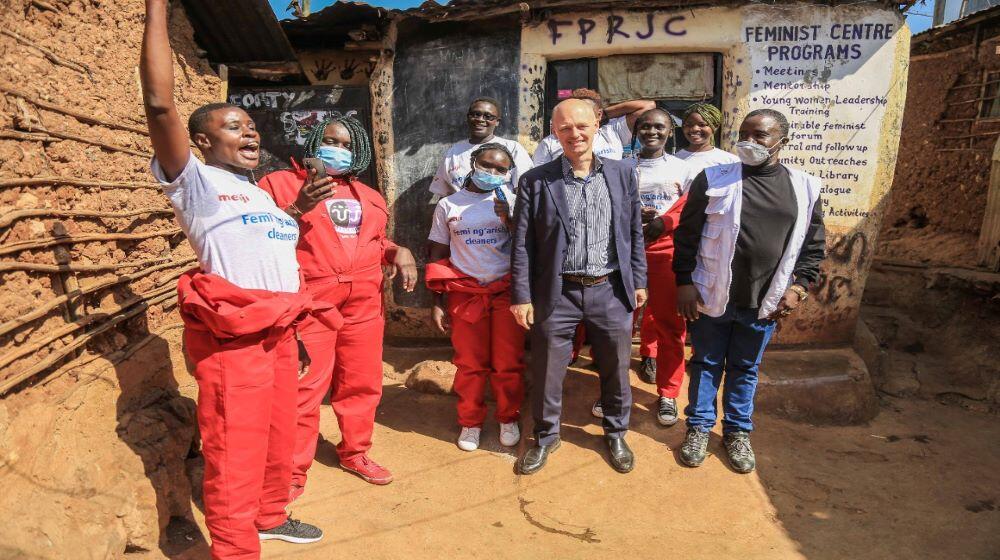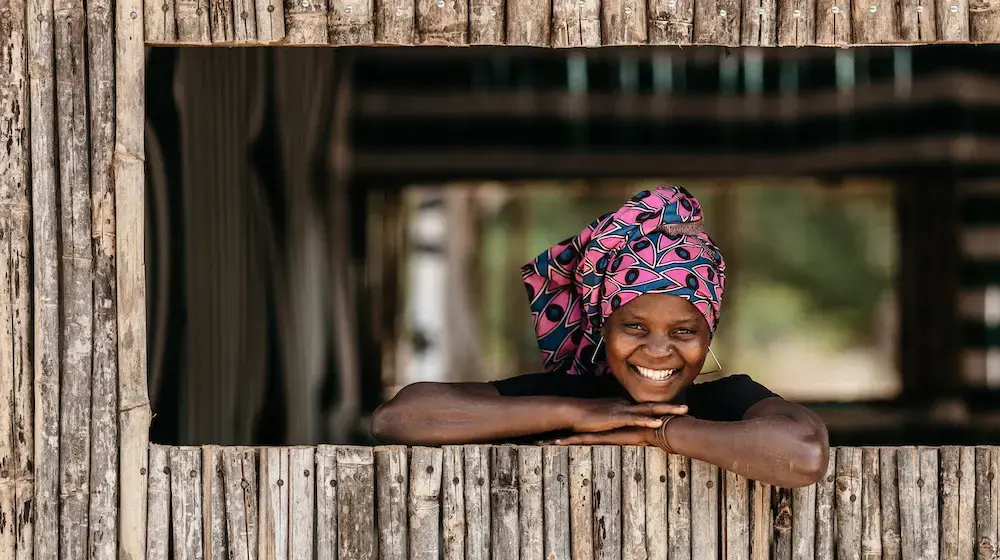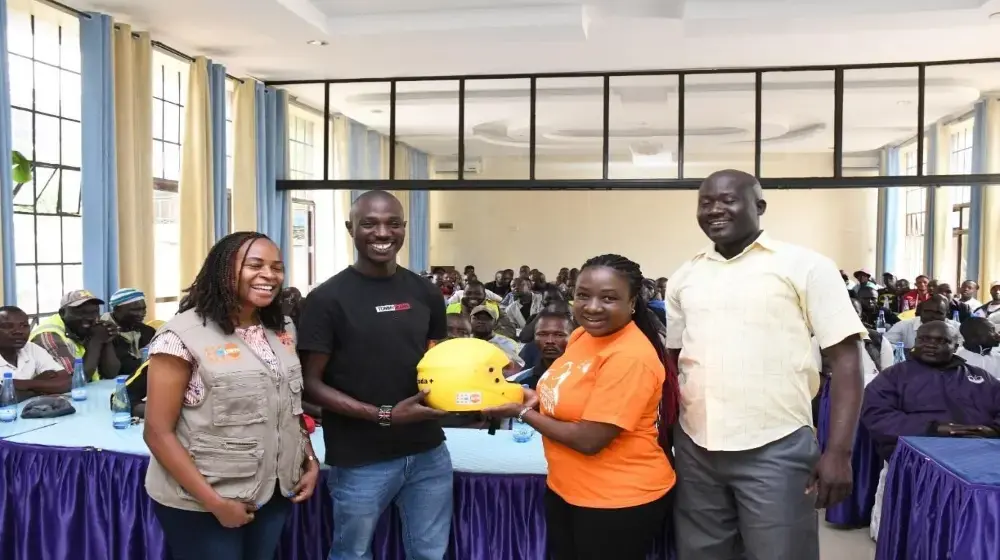In 2016, a group of young women united by their shared experience of surviving sexual and gender-based violence came together to launch the Feminist for Peace, Rights and Justice Centre (FPRJC), a community-based organization that works to support women and girls living in Nairobi’s largest informal settlement, Kibera. Led by founder Editar Ochieng, the group’s priority was the establishment of a safe space for women and girls in Kibera, particularly those escaping violence at home. “Our rescue center located right in the heart of Kibera, is where most women run to when they need protection from their abusers,” says Ms. Ochieng.
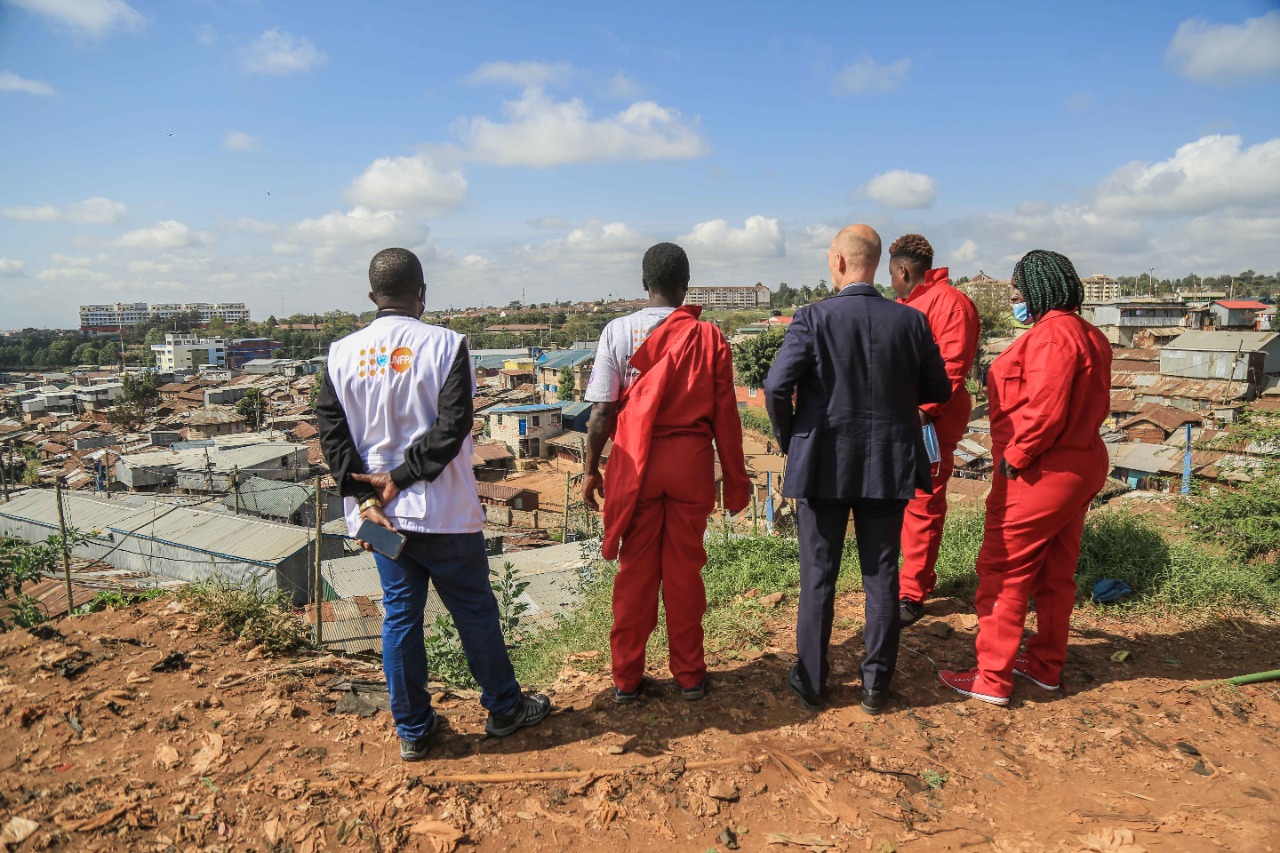
informal settlement in Africa.
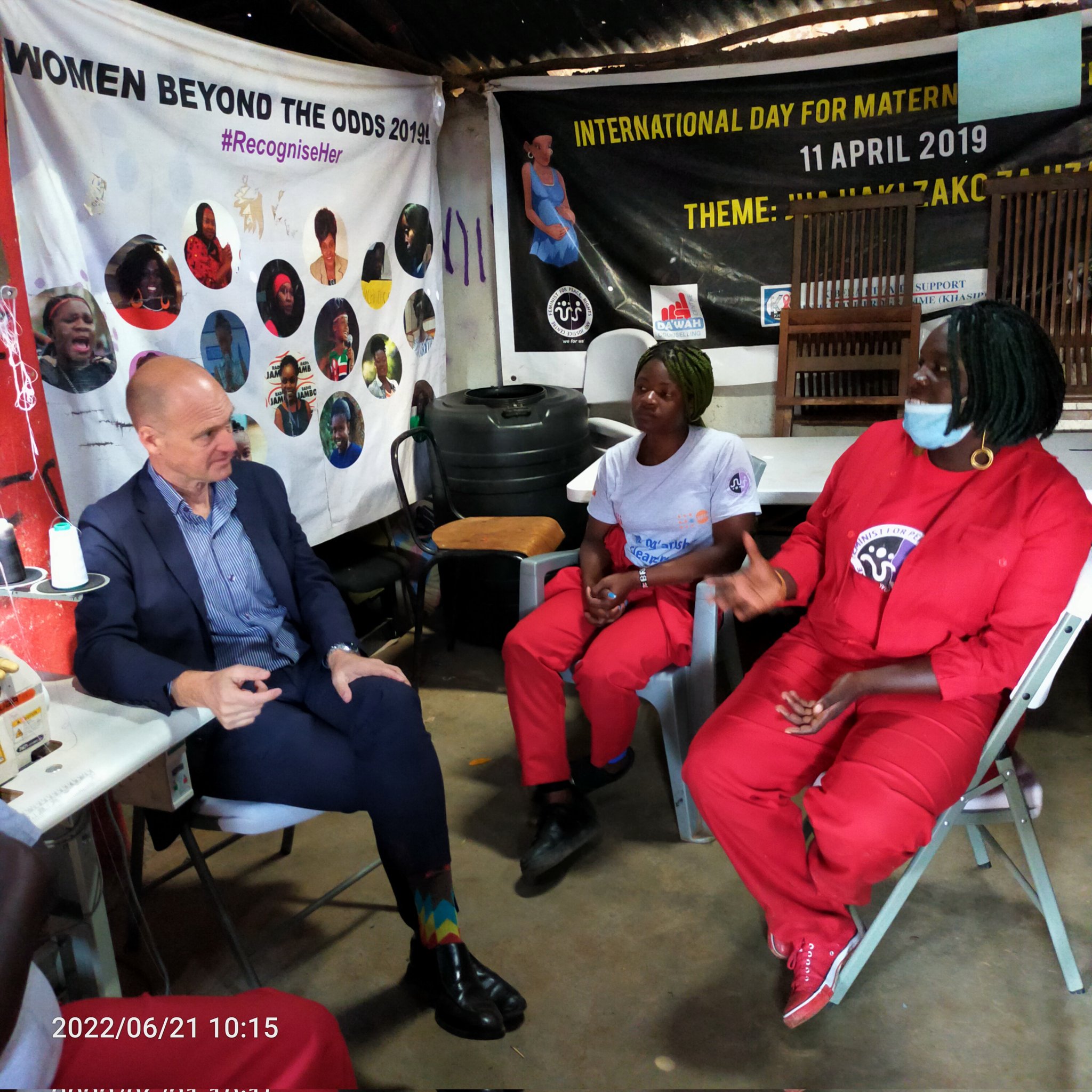
women's rescue center in Kibera, supported by UNFPA.
UNFPA representative Anders Thomsen toured the FPRJC rescue center located in the Kisumu Ndogo area of Kibera, as well as a soap-making facility and shop established by the center with support from UNFPA and partner organizations. From a humble beginning, FPRJC programs have grown to include women's forums offering leadership training, community outreach initiatives on ending gender-based violence, menstrual hygiene programs, as well as education and livelihood skills training to economically empower women and girls in Kibera.
Our rescue center located right in the heart of Kibera, is where most women run to when they need protection from their abusers
Reflecting on the work of the center, Mr. Thomsen lauded the efforts of the women, who despite coming from economically disadvantaged backgrounds have been able to build a center of hope for women in the informal settlement. “You are turning abuse into business and leadership, and this is inspiring to all of us. UNFPA works towards achieving gender equality and eliminating all forms of violence against women and girls, and we will continue to work in Kibera and other urban informal settlements in Kenya to support women-led initiatives that can bring lasting change,” said Mr. Thomsen.
According to the 2014 Kenya Demographic and Health Survey, approximately 38 percent of ever-married women aged 15 to 49 have experienced physical violence committed by an intimate partner. The COVID-19 pandemic worsened the incidence of GBV, with the number of reported cases increasing five-fold in 2020, compared to 2019.
In informal settlements such as Kibera, gender-based violence is exacerbated by poverty and gaps in accountability mechanisms and protection systems. Working with partners under the 10th Country Programme, UNFPA will focus its efforts on accelerating the elimination of gender-based violence and harmful practices by addressing the gender and social norms that drive violence against women and girls.

